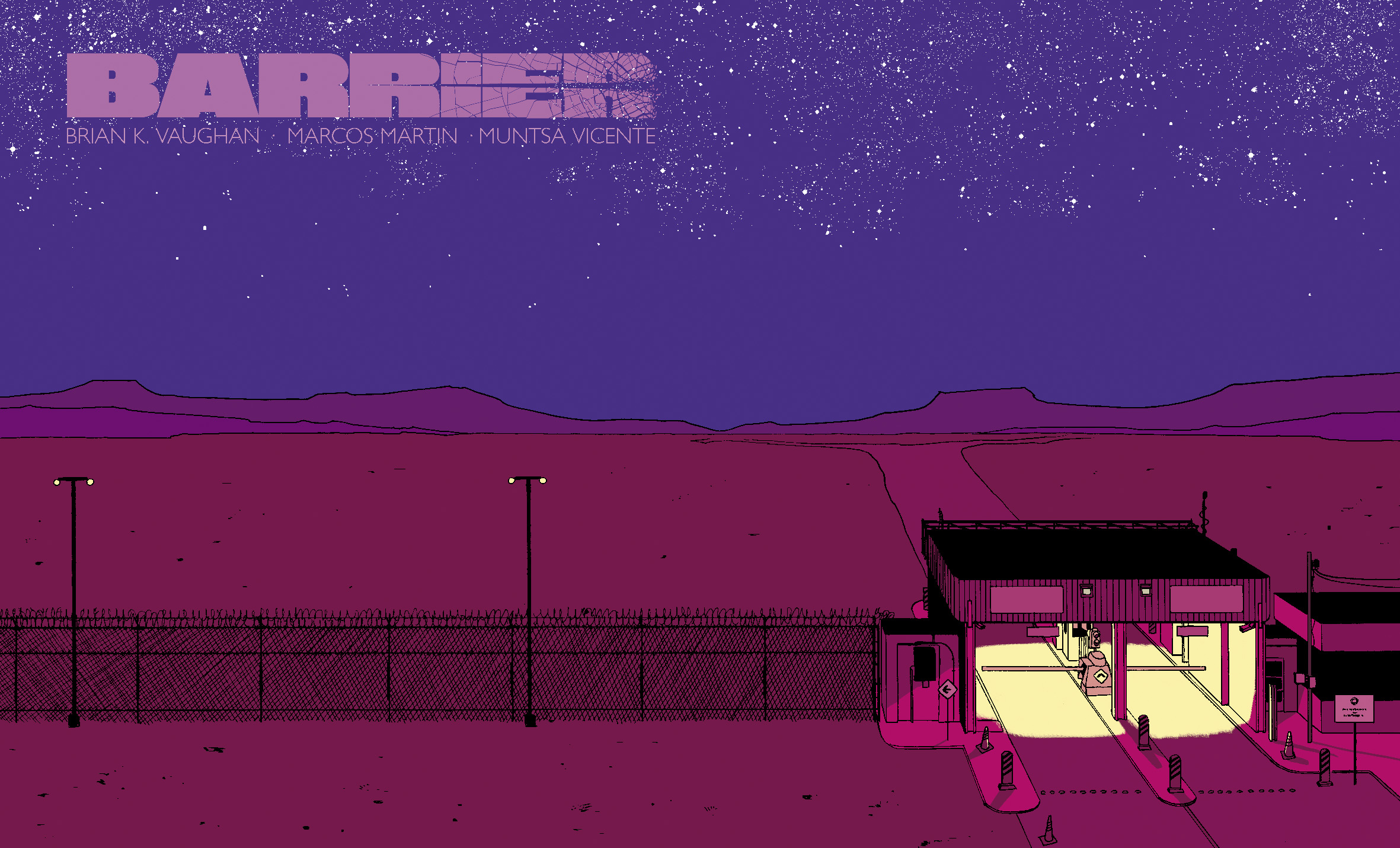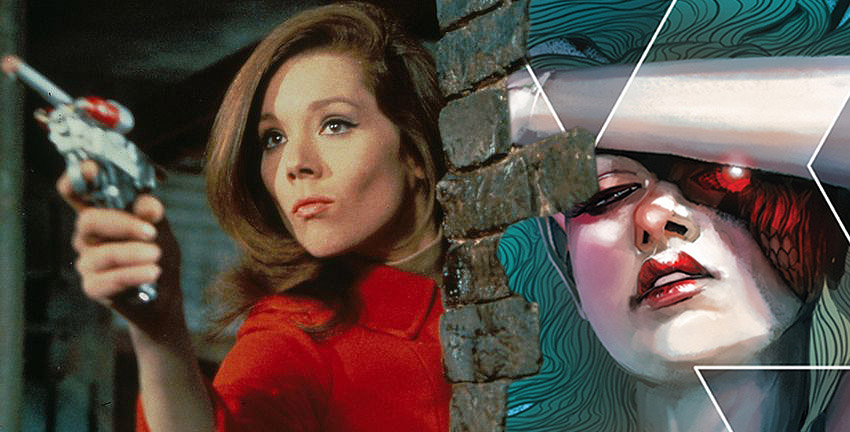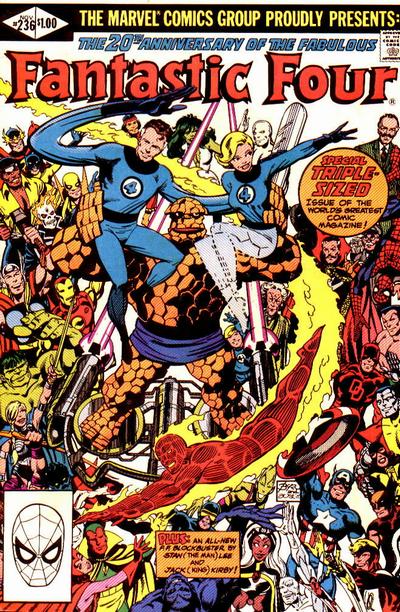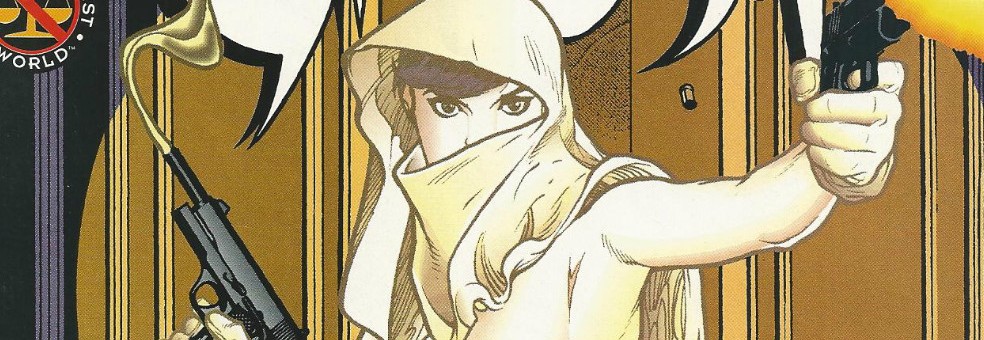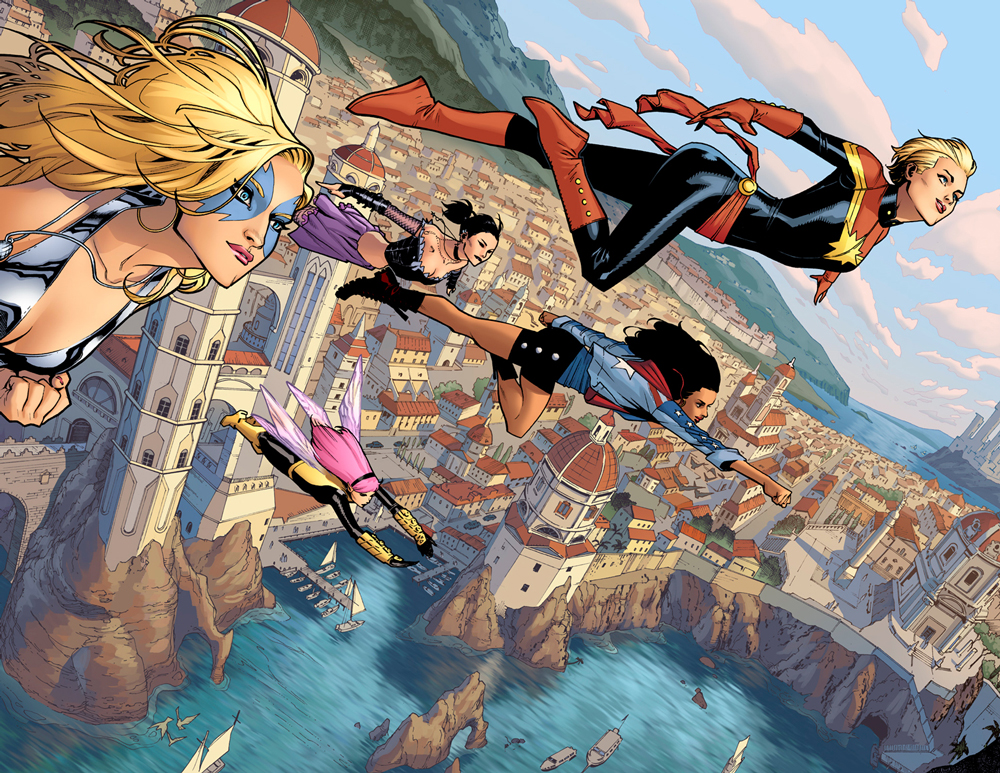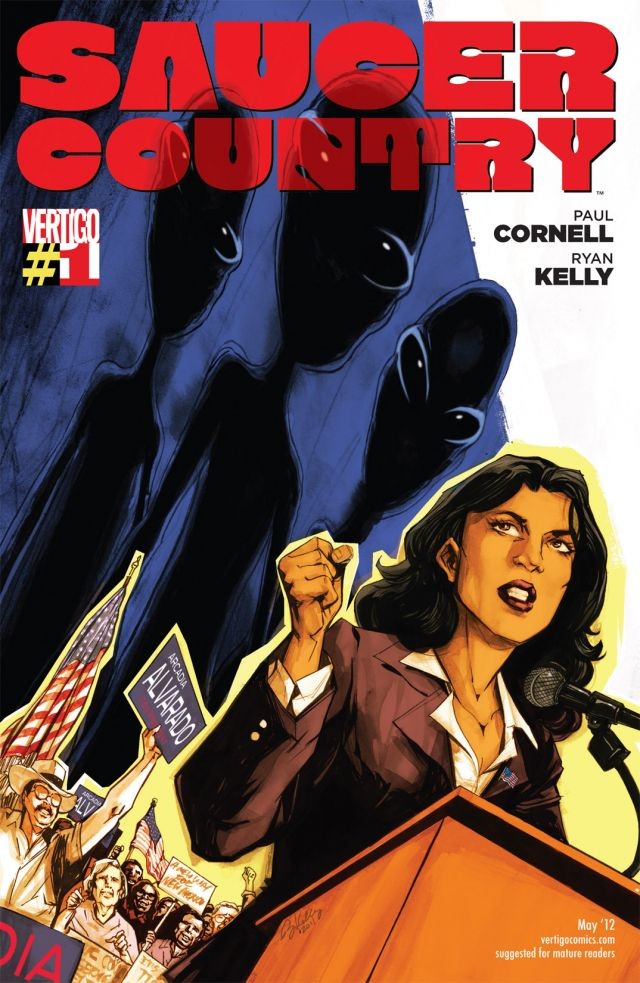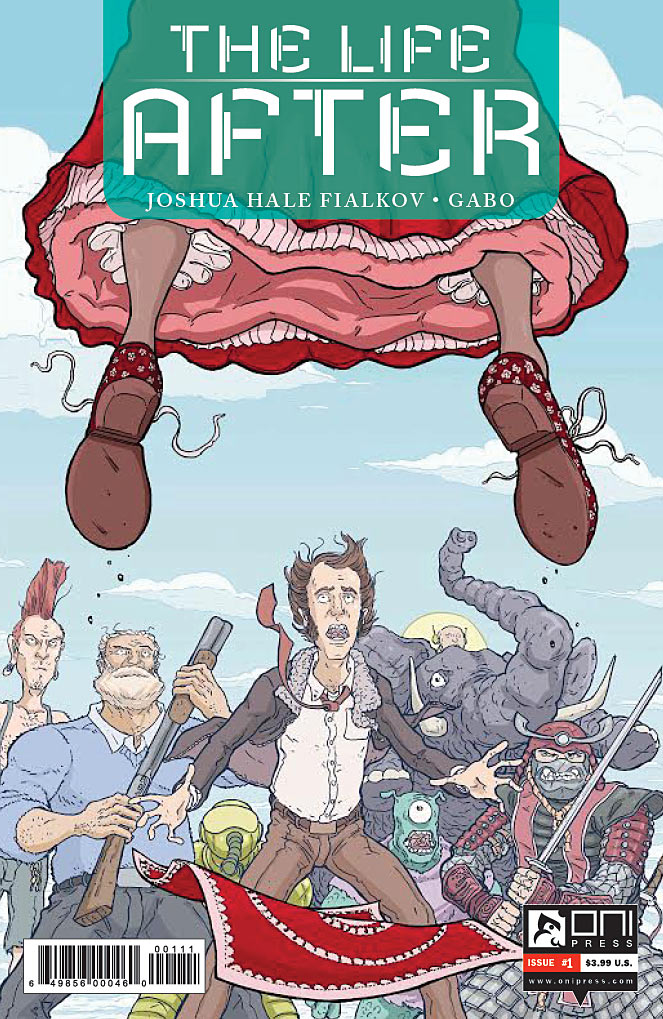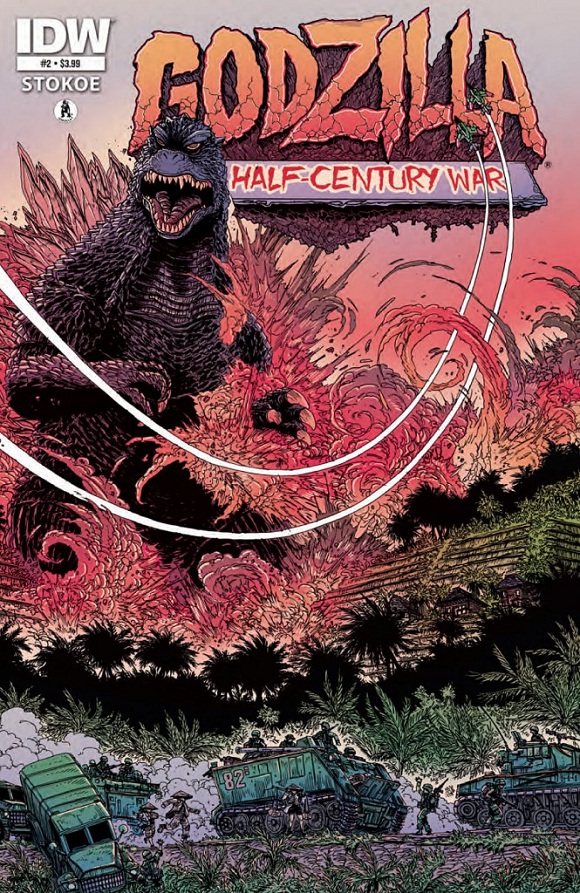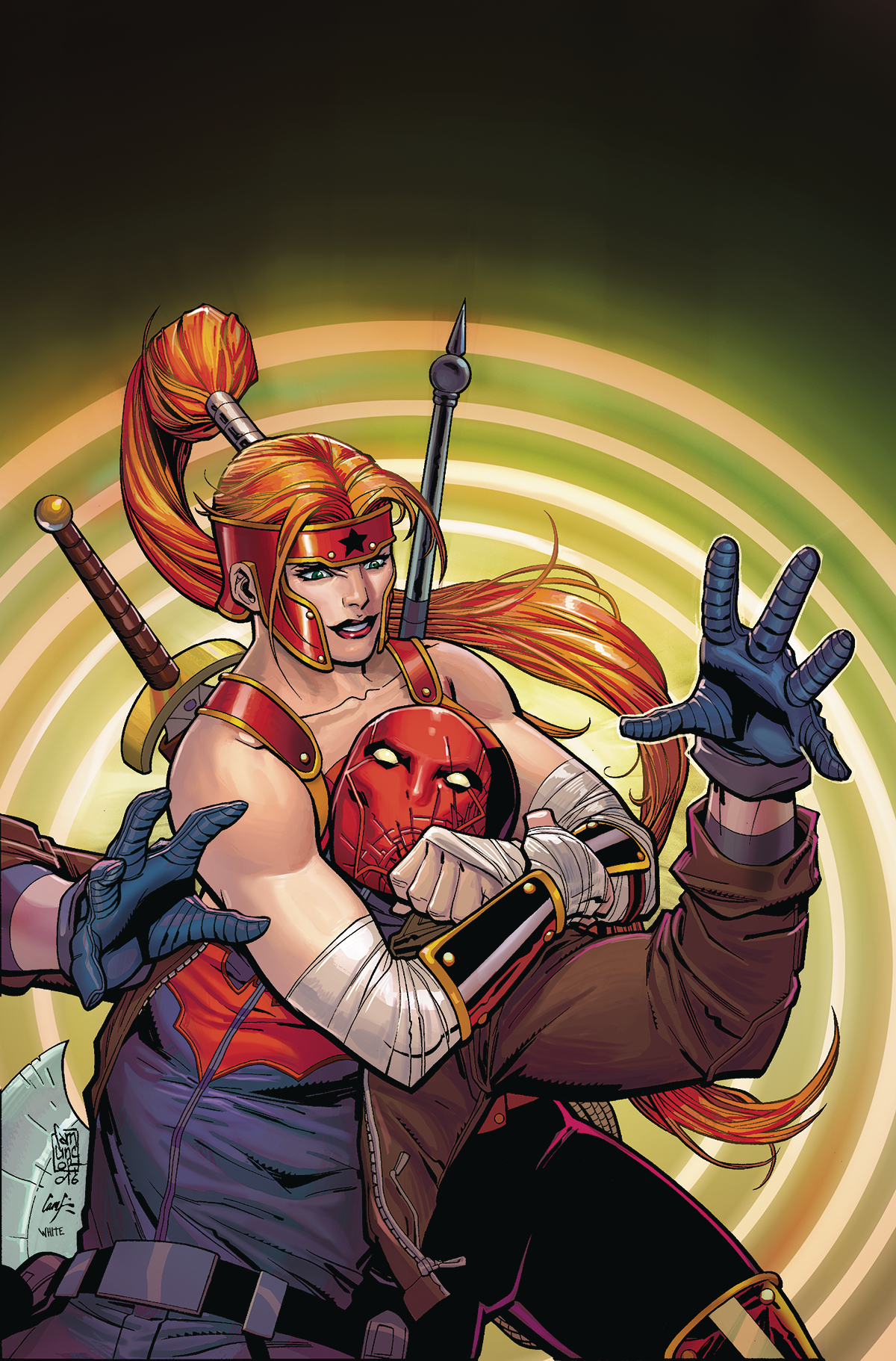Barrier #1
Written by, Brian K Vaughan
Art by, Martin Marcas and Muntsa Vicente
Recap
The story begins with Liddy, a Caucasian female landowner living in southern Texas near the Mexican border. She finds her horse with its head severed. Balthazar, her employee, inspects while she rides on horseback. Liddy blames the cartel and illegal aliens. Balthazar, “You can’t blame everything on aliens.” This opening sequence felt impactful because it highlights gender, race, and the bias’ people have involving both. In addition, the exchange is a foreshadowing of her relationship with a future character, Oscar
Oscar lives in Honduras but is traveling to the US as a refugee. He enters a loading dock where a man assaults a woman while others watch. There is graffiti, tattooed men, and weapons – it’s rough. Oscar saves a woman from two men who are assaulting her and then narrowly escapes the consequences. He pays them for a ticket on a train to the US. During the exchange one of the men states, “Americanos think you are dogs.”
The dichotomy, Liddy fearing for the safety of her animals from the Cartel and this homeless man seeking safe asylum in the US, frames the tension in the book. Little do they know that something outside of themselves, a much larger threat would bring them together
Liddy meets with a local for protection. He’s ex-military, stereotypical anti-cartel perspective. When he tells Liddy he’d castrate and kill the Cartel he finds Liddy leaves after threatening to castrate him. She’s tough. It makes the story interesting – we don’t know what she’s capable of but she isn’t afraid of anyone.
This is a story that involves adult themes, profanity, drugs, and the human experience. One person’s threat to safety is another person’s dreamland. It’s a relevant topic given the current political environment. The characters are genuine and gritty which makes this story more interesting. The art beautifully supports the environment, which is expansive, rural, and soaked in nature. The depiction of Honduras, Oscar’s commute, and the challenges he encounters on his way to the United States helps the reader empathize and feel the pain that Oscar endures. I highly recommend this book for readers who like comics that involve real-life dilemmas and adult themes.

